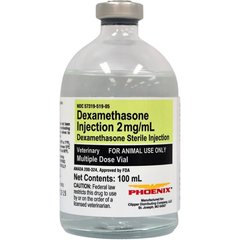4 Most Common Cat Vaccine Reactions and When To Call Your Vet
FatCamera/E+ via Getty Images
Cat vaccines are important for overall health and wellness and are generally given during annual checkups.
Cat vaccination schedules include rabies shots and the FVRCP vaccine, and less commonly the feline leukemia vaccine and others.
Feline vaccines carry a small risk for harmful (adverse) reactions.
Fortunately, most vaccine reactions in cats are mild and clear up on their own. However, severe reactions may happen in rare cases, and quick veterinary care is needed for the best outcome.
Pet parents should be aware of the types of vaccine reactions that can happen in cats and what symptoms to watch for after vaccinations.
Key Takeaways
- Cat vaccines are important for overall health and wellness and are generally given during annual checkups.
- These vaccinations carry a small risk for harmful reactions.
- If you notice your cat is acting extremely lethargic, or is showing concerning symptoms like not eating, contact your veterinarian.
What Is a Vaccine Reaction in Cats?
A vaccine reaction is any unwanted outcome that happens after a vaccination. Reactions can range from mild to life-threatening.
Although vaccine reactions are rare overall, kittens are at the highest risk because of their small size. Additionally, if multiple vaccines are given at once, the chance for a reaction increases in any cat.
Killed vaccines are a type of shot with viruses that have been inactivated. These vaccines also may have adjuvants to get the immune system working, which can increase the risk of reactions compared to other types of vaccines. Adjuvants are substances added to vaccines to help the body produce a stronger reaction to the vaccine.
The feline rabies vaccine is an example of a killed vaccine.
The 4 Most Common Cat Vaccine Reactions
Cat vaccinations can cause several different types of reactions.
Let’s look at the most common vaccine reactions in cats.
1. Localized Reactions
These generally happen at the vaccination site. Pain, swelling, and redness may be seen. There may be a small bump where the injection took place.
2. Whole Body Reactions
Because vaccines activate the immune system, cats may have fever, shivering, and lethargy as their immune system makes antibodies against the virus.
3. Injection Site Sarcoma
These cancerous lumps may grow underneath the skin at the injection site in cats. They have the potential to grow very large and eventually need surgery to remove.
Fortunately, these are rare.
4. Anaphylaxis
This life-threatening reaction generally happens within 15 to 30 minutes of a cat getting a vaccination, but it can develop later in some cases.
Here are a few telltale signs that a cat is having a severe vaccine reaction that needs immediate treatment by a veterinarian:
Facial swelling
Symptoms of Cat Vaccine Reactions
The most common symptoms of vaccine reactions include:
-
Swelling or bump at injection site
-
Redness at injection site
-
Pain at injection site
-
Lethargy
Rarely, cats may have severe reactions, generally occurring within 15 to 30 minutes after the injection. Symptoms of more severe vaccine reactions include the following:
-
Diarrhea
-
Difficulty breathing
-
Itching or hives
How To Treat a Cat Vaccine Reaction
If you are unsure whether your cat is having a vaccine reaction, call your veterinarian.
If your cat just seems a little more tired and is eating less than usual, the veterinarian will likely tell you to see if your cat is back to normal the following day.
Adding some wet food to your cat’s bowl to increase his appetite may be helpful. Giving an antihistamine such as diphenhydramine may be recommended, but always ask your veterinarian before giving your cat any medications.
If your cat is having pain or swelling at the injection site, you can apply a cold compress for about 10 minutes twice a day to help.
If your cat is having more worrisome symptoms, such as facial swelling or hives, take a trip to the veterinarian immediately.
The veterinarian will give medications, such as a quick-acting steroid like dexamethasone, to end the reaction. Your cat may stay in the veterinary hospital for the day to be watched and given supportive care.
When To Call Your Vet
Many cats are more tired following shots, especially if multiple injections are given, but this generally clears up within a day or two.
If you notice your cat is acting extremely lethargic, or is showing concerning symptoms like not eating, contact your veterinarian.
Pet parents should bring their cat to the emergency veterinarian if they notice any of the symptoms of a severe reaction mentioned above. Severe vaccine reactions need quick treatment by a veterinarian, which can be lifesaving.
Cat Vaccines FAQs
How do you help a cat feel better after a vaccination?
If your furry feline is not feeling well after vaccines, it’s best to contact a veterinarian to explain what symptoms your cat is having and figure out the right steps to take.
Often, cats just need a little rest and care to get back to normal, but on rare occasions, they may need fluids or medications given by a veterinarian.
Are there specific vaccines that are more likely to cause reactions besides rabies?
Adjuvanted vaccines are those with ingredients added to increase the immune system’s response. While not commonly used today, these pose a higher likelihood of vaccine reactions than non-adjuvanted vaccines.

